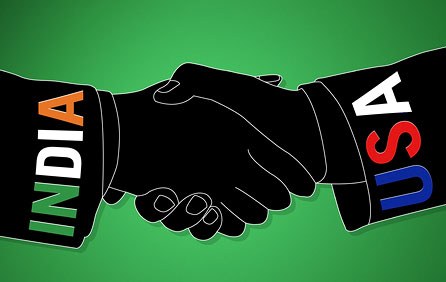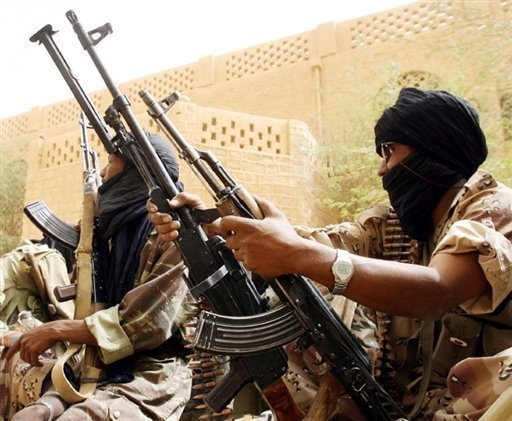By: Simon Miles
Amidst the worldwide enthusiasm in response to the continuously mounting successes of Libya’s rebels, Russia has been a dissenting voice on the international scene. Recent statements by Russia’s permanent representative to NATO, Dr. Dmitri Rogozin, are the latest in a series of condemnations of NATO’s actions. “For Russia,” Rogozin declared, “NATO’s operation in Libya indicated that the major interests of the alliance now lie not in Europe’s East – where its adversaries the Warsaw Pact and the Soviet Union used to be – but in oil-rich lands of Northern Africa and the Middle East.” The NATO intervention in Libya is but one of many areas of tension between NATO and the Russian government, in addition to missile defense initiatives, the Collective Forces in Europe Treaty, the outcome of the recent elections in Abkhazia, and the accession of further Eastern European nations to NATO.
Elaborating, Rogozin enumerated his government’s three key reasons for objecting to NATO’s intervention. Firstly, it rejects the imposition of a normative concept of human rights on other sovereign countries, and using force in so doing. Secondly, Russia argues that NATO activities have overstepped the provisions of the United Nations Security Council (UNSC) resolution permitting foreign military intervention to safeguard the well-being of Libya’s civilian population. Thirdly, Rogozin suggests that the wave of uprisings dubbed the “Arab Spring” is replacing old regimes with new, fundamentalist ones. Western encouragement of Libya’s rebels could precipitate further destabilization and, he suggests, even more power becoming concentrated in the hands of radical Islamists. “This is why the intervention of the Western countries into the situation in the Middle East in order to get the hydrocarbons is assessed as a very risky gamble,” Rogozin concluded, “almost as dangerous as a stroll through a minefield.”
Russia has a record of opposition to NATO’s involvement in Libya. At the UNSC, Russia abstained (along with Brazil, China, Germany, and India) from voting on UNSC Resolution 1973 which allowed for a no-fly zone over Libya and the use of “all necessary measures” to protect Libyan civilians. Both Russia and China refused to participate in any embargos on the Qaddafi regime – largely because doing so would put the Russian oil companies contracted to manage much of Libya’s oil infrastructure out of work.
Following a 30 April airdrop by French forces of weapons to rebel fighters in Libya’s mountainous regions, Russia expressed its opposition concretely. This was far from rabble-rousing on Russia’s part, however. In terms of international law, France’s action in this instance and in many others of supplying the rebel forces with considerable quantities of materiel is only questionably permissible. UNSC Resolution 1970 imposes an arms embargo on Libyan territory, but France has argued that the provisions of Resolution 1973 allow for arms to be given to the Rebels, albeit not specifically. Russia, joined by the African Union, rejects this logic.
Most recently, on 1 September, Russia recognized the rebel regime as being the legitimate government of Libya on the eve of a conference in Paris on Libya’s future. Moscow pressed for a negotiated settlement of the conflict, and on several occasions dispatched envoys to meet with leaders from both sides of the civil war. President Dmitri Medvedev declared that Russia would withhold recognition until the rebel forces had a clear position of dominance throughout Libyan territory. Viewed from Moscow, that condition appears to have been met, as the Foreign Ministry announced that it no longer considered the Qaddafi regime to be Libya’s legitimate government.
There is naturally an internal political dimension to this aspect of Russian foreign policy, which is directly linked to the continuous struggle for power between President Medvedev and Prime Minister Vladimir Putin. Putin initially (and clearly independently) condemned NATO’s humanitarian intervention, calling it “flawed and inadequate” and declaring that it reminded him of “a medieval call to crusade” on 21 March. Russian news services echoed this sentiment, depicting French President Nicolas Sarkozy with clear relish as a would-be Napoleon of the modern era. Shortly thereafter, President Medvedev called an impromptu news conference at his country estate – where he proceeded to directly contradict most of his Prime Minister’s pronouncements and rebuke him for his likening the involvement to a ‘crusade.’ The press hastened to align itself with the government’s new tack.
In conclusion, the Russia-NATO relationship is clearly one in dire need of amelioration. Spats over the appropriateness of actions in Libya are but one aspect of a relationship which has since 1949 been a turbulent one. Nevertheless, thanks largely to their coordination with NATO air forces, the rebels’ hold over Libya appears to be a fait accompli with which Mr. Medvedev and Mr. Putin will have to come to terms. Their next challenge will be in transitioning Russia’s Libyan economic interests from the Qaddafi regime to the opposition movement.
Disclaimer: Any views or opinions expressed in this article are solely those of the author and do not necessarily represent those of the NATO Council of Canada.



